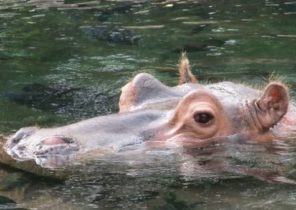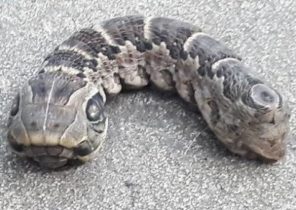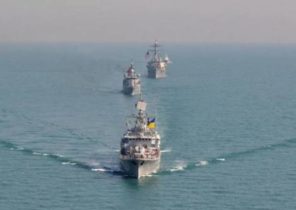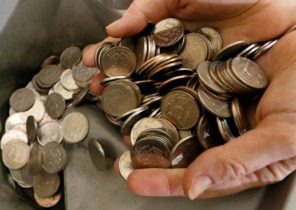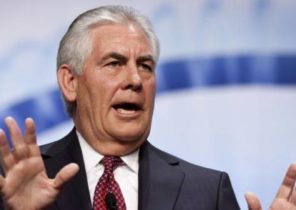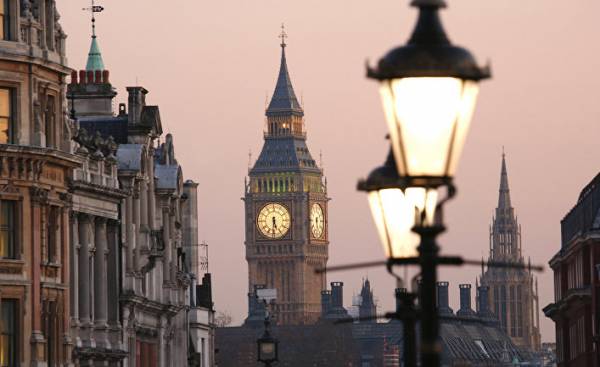
Exclusive: investigators in Eastern Europe found a trail leading to fur brokers, jewelers of bond street and even to the same school in Somerset.
Before us is a fabulous English landscape. From the height of Glastonbury tor (Glastonbury Tor) you can see green fields and coastal valleys of Somerset. Below the school is located. There are playgrounds, boarding houses, and private forest ownership. There is also a Golf course and swimming pool. This Millfield is one of the most prestigious and expensive schools in Britain.
The majority of parents sending their children to Millfield, — rich. Some work in London city, while others are foreign nationals, who are attracted by the advantages of British education. In September 2011 this school was sent by the father of one 12-year-old student. The student was from Russia. Tuition for one quarter was 10 943 pounds.
What happened then, was not — at first glance — something unusual. For payment of this account was used anonymous company-Inbox. It was called Valemont Properties Ltd. She was entered in the register of Companies House in London and regularly provides tax reporting, though not quite clear. And she had Director.
And she was insolvent: the cash flow of the company Valemont went on one Latvian Bank account of the school Millfield in the Bank Lloyds TSB in the Street, a sleepy little village where the school is located Millfield for high school (Junior or preparatory school is in another location, near Glastonbury). Nothing in this case has not caused the school Treasurer no doubt, and he did everything by the rules. The Treasurer could not know that the activities of the company Valemont was under the scrutiny of law enforcement agencies in the investigation of a daring international scheme for money laundering.
Investigators in Eastern Europe are studying the payments a dozen companies worth more than $ 20 billion. And this amount, in the end, could reach $ 80 billion.
Authorities discovered a trail of money that leads from Russia to the Baltic States and from there to Europe and America.
Today we can reveal Britain’s role in this scheme and to say what a huge amount of potentially unclean money to Western banks and left them. In these operations, in particular, was attended by such banks as HSBC and Royal Bank of Scotland, and no trouble is not caused.
In this regard, the obvious question arises — how could this happen?
This ingenious scheme originated in Russia. Simply put, it was a way for the Kremlin insiders and other well-known Russians to transfer cash abroad.
The scheme was discovered in 2013, and the first details became known to the public as a result of the activities of the group called the Project for the investigation of organized crime and corruption (Organized Crime and Corruption Reporting Project — OCCRP). This is a highly respected independent team of investigative journalists, which is partially funded by the state Department of the United States. The members of the group OCCRP call this scheme “global Laundry” — “Laundromat”.
This scheme covers Russian banks, the Moldovan oligarchs, as well as a network of fictitious companies, led by the bogus “nominal” Directors, many of whom are in Ukraine. The participants had perfect relations with Moscow. The nephew of Vladimir Putin, Igor was part of the Board of Directors of the Bank in which the accounts have been opened and laundered billions of dollars.
Before the detection scheme was one of several operations of the mafia, with which rich was able to secretly withdraw money from the country and spend them in the West.
And that was to a limited extent: according to a Deutsche Bank study in the United Kingdom in recent years, was sent to 138 billion pounds. “A significant portion” of that amount came from Moscow, from the country, whose economy is under the control of organized crime.
The schemes of money laundering are extremely profitable, and for them is a struggle between rival factions within the Kremlin power structures. “Money laundering is the biggest business in Russia, — said the former Russian banker, currently living in exile. — Steal money from the budget. And you get these dirty money. They need something to do.”
This banker added: “the Entire Russian economy is dying. Bribes are the most important part. And the people providing services on money laundering, have a very great political influence.”
People who know this world, they say that schemes like “Laundromat”, can only function with the support from the top.
Shell companies and “loans”
“Laundromat service to our” working in full force, but its main feature was a financial sleight of hand.
The documents, which were able to meet the staff of the Guardian newspaper, suggests that the scheme was launched in October 2010 with the seemingly innocuous transactions.
Firm Valemont signed an agreement on granting a loan in the amount of $ 180 million another bogus company on the territory of the United Kingdom — Seabon Limited. Investigators say that no credit is actually not.
As part of this existed only on paper agreement between two Russian companies — OOO “Lite M” (LLC Laita M) and OOO “Spartak” (Spartak LTD) is proposed to provide insurance of this loan. According to the reports, the deal was signed by the citizen of Moldova Andrei Abramov, an employee of the airport. According to him, persuaded him to do it for $ 100 and a promise to take him to work, which remained a promise.
First, the firm Valemont accused Seabon that the money was not returned, and went to court in Moldova in order to return the funds. In Moldova, judges are persuaded to certify the reality of the debt — and as a result he received enforceable (ships are sometimes provided bogus correspondence between the companies).
After that, Russian companies were transferred 180 million of real money into accounts at the Moldovan Bank Moldindconbank. From there the money was sent to accounts of Trasta Komercbanka Bank, located in the Latvian capital Riga.
As a result of transfers with the money, there was a wonderful metamorphosis.
Translation from Russia they were in the EU according to the rules and legal. And from Riga can be moved to any location.
It just happened. Law enforcement officers in Latvia and Moldova subsequently discovered extensive traces: in this operation were involved in 96 countries and conducted about 70 thousand Bank transactions.
Money from Valemont and a dozen other similar companies, went to large economies such as the United States, China, Germany and France. As well as in smaller — Denmark, Slovenia, South Korea, Taiwan and Finland.
Most of these billions disappeared into the twilight world of offshore companies. In this scheme, the skillful way combined real and fictitious transaction. Part of the money was spent on luxury goods — furs, diamonds, Swiss watches, German industrial equipment, trendy baby clothes, as well as for the rental of elegant hotel rooms in the Alpine ski resorts, which is located in the Russian oligarchs. The piece was directed by Pro-Kremlin research center in Poland.
“Laundromat service to our” worked from 2010 to 2014. It was one of the most successful scams by money laundering. No-one in Britain had never noticed it.
And, of course, didn’t notice her British banks, which should be armed with sophisticated processes to detect questionable transactions. Two American Bank refused to accept the transfer on the grounds that they looked suspicious.
However, all of the major UK banks — including HSBC, Lloyds, NatWest and Royal Bank of Scotland is allowed to spend through $ 780 million.
HSBC has cut $ 500 million from “Landromat” through its offices in the UK and abroad
HSBC, through its British foreign office and spent most of the money — 545,3 million dollars. The Bank RBS is mainly owned by British taxpayers, received 113 million dollars.
Six companies, which, as established by the Moldovan police, participated in the “Landromat”, translated 110,5 million dollars located in the Isle of man the firm RF Procurement Ltd.
It is not clear who is actually the owner of the company RF Procurement — not to be confused with another firm of the same name located in Hemel Hempstead.
Alexander McNee (McNee Alexander), head of the Department located in Douglas (Isle of man) Ltd of Boston, is a nominee Director of the company RF Procurement. Firm Boston Ltd provides fiduciary services to corporations and private clients worldwide, as well as acts as a registered agent in corporate. McNee must know the name of the beneficial owner. However, he refused to provide this information to the Guardian newspaper, citing confidentiality in work with clients. However, McNee agreed to refer the issues to the owner about the money received by the firm RF Procurement as a result of the transaction 104.
The representatives of the company refused to comment regarding the transaction and said nothing about what they know about “global Laundry”.
In a statement the company said: “the Firm RF Procurement Limited is an international trading company that receives its products primarily from the Far East from the well-known and reputed suppliers and then sells them to customers, dealing with their distribution, including in the Russian Federation”.
“As far as we can tell, our suppliers and customers also be cautious in selecting trading partners. We are extremely serious about compliance with legal requirements and to the system of KYC (know your partner), and, in addition, have an extensive system of protocols and procedures to ensure the highest standards.”
According to McNee, Boston complies with the law in the area of anti-money laundering and countering the financing of terrorism.
The regulator in the Isle of man exercises control over the transactions.
The documents, which the group OCCRP and Novaya Gazeta told the staff of the Guardian newspaper, show how closely connected was “Laundromat service to our” United Kingdom and how billions of dollars was conducted via a registered British company.
The money originally went through 21 companies, most of which was created and registered in the United Kingdom.
They had addresses in London, Birmingham, Edinburgh, Glasgow and North Yorkshire. The owners or final beneficiaries remained invisible. Hired managers acted as a “nominee” Directors.
Often these agents were in very remote locations (Belize) or some obscure volcanic atolls (Marshall Islands).
When the authorities began to uncover the existing scheme, many involved in “Andromache” of the company at the end of 2015 were quietly eliminated.
Tuition
The boy from Russia, who studied in Millville rich family.
In social networks he posted their pictures in luxury cars and designer watches.
He hangs out in Paris, Moscow and St. Petersburg. For the holidays, his family travels to Dubai, South Africa and Tuscany.
All expenses apparently paid by his father Vadim ZADOROZHNY. A successful businessman, one of many successful Russians who managed to achieve financial prosperity in the Putin era.
Zadorozhnyi began to trade with Antiques, then moved into real estate, and now owns a hotel and several restaurants. He also owns one of Russia’s largest private museums, where among the hundreds of exhibits and a classic car, bulletproof cars including Stalin and Yeltsin.
There are tanks, warplanes, missile launchers and samples of Soviet military equipment. Giving in 2015 interview, ZADOROZHNY said that my collection of Patriotic reasons. “The largest deficit in our country is the pride of Russia”, — he said.
For teaching his son (at least for one semester) paid by the company Valemont caught in the middle of a criminal investigation of the scheme “Laundromat service to our”.
Guardian reporters saw the Bank account from 1 September 2011, where it says “tuition fees”.
It is not clear that zadorozhnyi know about “Landromat” and what role he played in the company of Valemont.
Guardian journalists went on it a few weeks ago, however, assistant Alexander V. said he will not comment on anything.
The leadership of the school in Millville said that three years ago he was informed about statements about Valemont, and it referred the case to the National Agency for the fight against crime. “The payment was made from the Bank account in the UK and at that time no suspicion was not aroused, said school officials. — In 2014 we review and strengthen measures to combat money laundering and inform the National Agency for the fight against crime. We comply with all requirements of law and, of course, without delay, report to the authorities anything that looks suspicious.”
Diamonds and fur
Many British retailers, unknowingly entangled in the scheme.
Part of associated with “Landromat” accounts purchases of luxury items such as diamonds, leather jackets, perfumes, home cinema and elegant chandeliers.
It is not always clear who spends money. But the trail leads from expensive boutiques to Chelsea in the small community of London merchants furs.
Quite often directed at banks purchase orders were faked. At the end of 2013, one Russian buyer visited a posh jewelry store on bond street under the name of Graff Diamonds. He (or she?) I bought two pieces of jewelry worth 175 and 150 thousand dollars.
The store did not have any suspicions. In sent to the Bank account Barclays said it was payment for construction equipment.
On the same bait, and others, for example, a company selling elegant lighting fixtures Porta Romana. She was sent to Moscow to one customer table lamp of glass. The trail also leads to the companies real estate. One anonymous company contained in the leaks, called Quandu Finance. It is registered in the British virgin Islands.
The firm purchased a townhouse in Kensington for 29 million pounds. The company Seabon Ltd, involved in the first transaction for money laundering, bought apartments on Prince’s square, which cost of 13.2 million pounds.
Another associated with “Landromat” the firm owns the historic London pub, Bloomsbury Tavern, which is located on Shaftesbury Avenue. Other companies from this scheme are the owners Parking in Holborn, a few apartments in Manchester and land in Essex.
All these data show, as were paid on account of the London and California agencies talent search for creative employees. “Laundromat service to our” used for the payment of fees to artists making a tour of Russia. Among them is a rock band from Florida, Red Jumpsuit Apparatus and a singer from Israel Yoav. They played in Moscow and St. Petersburg in the fall of 2013. There is no reason to assume that the artists knew about the money laundering scheme. Who organized these tour Agency called Silent Network. Then it was gone.
“Laundromat service to our” reach one of the four largest accounting firms of PricewaterhouseCoopers, which recently hired David Cameron as a speaker. She got 27 thousand euros for the provision of “consulting services” one Cyprus company owned by Russian.
PricewaterhouseCoopers declined to name his client, but said that will give the right information to the regulatory authorities of Cyprus.
“They did not look like criminals”
Some people trapped in a scheme to launder money “Laundromat service to our” were law-abiding businessmen who were trying to cope with the Russian corrupt customs system.
To import the goods to Russia, they were forced to pay brokers who had a complex system of customs clearance. It has also been associated with the British companies belonging to the scheme “Laundromat service to our”.
One Russian businessman said that it is almost impossible to carry designer things that he wanted to sell in Russia, without resorting to third-party companies.
“You really have no choice,” he said. And he added that these companies have some shady business with the government.
Usually have to pay these carriers 30-40% of the cost of any party.
According to him, the supply chain was complex and involved several intermediaries. The truck was taking clothes from a warehouse in the UK and went to the Baltic countries, before heading to St. Petersburg and Moscow. The businessman said that pay brokers directly. They directed payments to a partner Bank in Europe.
“We have over seven years on this market, and we still don’t know exactly what that scheme is and how it fully looks, he said. — Maybe it is even more difficult.” According to him, 90% of Russian businessmen used the scheme “approved by the government.” “Even more: if you try to modify the schema of the import, you will have a lot of problems,” he said.
Theoretically everything is officially and legally. In practice, the “Laundromat service to our” makes it possible in Russia for three different crimes: tax evasion, evasion of customs duties and money laundering. In 2013, grey import schemes cost the state $ 40 billion, according to Russian parliamentary Committee.
Records obtained by the Project of investigation of corruption and organized crime (OCCRP) show that a British company imported a huge number of products of different brands in Russia, at least on paper. In 2013 it was Ventro Trading, Trading Pulman and Mount Industries.
After the goods have been laundered, British firms were liquidated. No taxes were not paid. Often the Russian tax inspectors tried to attract British companies to court. However, their owners were able not only to find but, in many cases, even identify. Meanwhile, a new British company all recorded. The cycle continued.
The Russian businessman, who was talking to the Guardian, said that had no idea what was involved in the scheme “Laundromat service to our”.
In 2011, he was a children’s fair in Moscow. A young woman approached him, gave him my business card and asked to contact if he needs help with the importation of goods. Later he visited the firm’s office in Central Moscow. “They did not look like criminals. They had a nice sofa,” he says.
Another group, using the scheme of “Laundromat service to our” trading fur. Soviet Russia was one of the largest exporters of fur. Today, most of the fur, in contrast, is imported to Russia. Russian clients use brokers in London to buy furs at international auctions. Another important fur market in China.
Data “Landromat” testify to the enormous number of transactions for the sale of fur. One London broker said that the purchase was authentic, and added that she knows of his Russian clients for many years. Banks, including Barclays, have tightened rules for the audit of a large payment from Russia, he said. “They strongly tightened the nut”.
However, the data show that banks sometimes misled. One British fur company, John Shackman Ltd, has received 500 thousand dollars from the Russian buyer.
Payment in may 2013 was made at the fur. Submitted to Lloyds TSB, the documents stated that the cash listed in the UK, was intended for the purchase of “notebooks” (notebooks).
Nobody thinks that a fur company or the owner of Bartfeld Gideon (Gideon Bartfeld) did something wrong. Bartfeld email said that the payment was made through “two respected international Bank with good reputation”. Both “were satisfied with the payment according to their strict rules and requirements,” said Bartfeld.
Who is behind the scheme “Laundromat service to our”?
According to the Russian newspaper “Kommersant”, which refers to law enforcement officers, the conduct of the scheme “Laundromat service to our” engaged a group of about 500 people.
One of its alleged creators was Veaceslav Platon, Moldavian businessman and former member of Parliament. Plato denies his guilt. Now he is in prison in Moldova on charges of money laundering after being extradited from the Ukraine in the summer of 2016.
Another alleged leader of the group — Alexander Grigoriev, the 49-year-old Russian banker. Grigorieva was detained in November 2015, when he was in the restaurant with a friend. He denies any wrongdoing and is still in custody.
Grigoriev headed the “Russian land Bank” (RZB) from 2012 until the time of his arrest.
He brought with him several new shareholders, six are in Cyprus companies (one of them, Boaden Ltd, appeared in “Andromache”). Grigoriev has also led a new team of managers. The Chairman of the Board was Igor Putin.
In the 2014-2015 regulators Grigorieva stripped of its banking license, starting to suspect that the funds mysteriously disappear.
A source in the Russian police said “Kommersant” that Grigoriev was one of the many famous people who used the “Laundromat service to our” to withdraw liquid assets worth 46 billion dollars from Russia.
Russian investigation “Laundromat service to our” was superficial. One of the investigators admitted that his investigation RZB decayed. Two FSB agent visited their colleagues in Moldova and collected documents. There is a suspicion that the real purpose of the FSB was only to see how much was known to the investigators. In March, Moldova complained that in recent months, Russian agents have pursued Moldovan diplomats, who came to Russia.
The money the state-owned Russian Railways, it seems, was also redesigned.
When the scheme of “Laundromat service to our” active, “Railways” was directed by longtime ally of Vladimir Putin, Vladimir Yakunin.
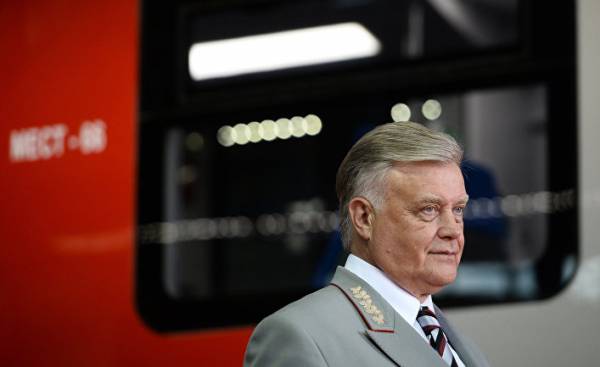 © RIA Novosti Maxim Blinov | go to Photobacterium JSC “Russian Railways” Vladimir Yakunin
© RIA Novosti Maxim Blinov | go to Photobacterium JSC “Russian Railways” Vladimir Yakunin
He, in turn, relied on a close friend and Advisor Andrei Krapivin. Krapivin died in 2015.
But not before billions of dollars intended for investment in the Railways, settled in the accounts associated with the scheme “Laundromat service to our”.
Krapivin’s son, Alexei, who asked about it two years ago, said that the materials about the participation of his father in illegal activities — “the nonsense”. To give a detailed review, he refused.
Moldovan investors believe the Kremlin could use the cash according to the “Laundromat service to our” to conduct political operations. In particular, they think that the money could go to support parties opposed to the EU.
Reliable evidence is not enough. Interestingly, one of the banks caught in the “Laundromat service to our,” he was the First Czech-Russian Bank, which in 2009, before there was organized “Laundromat service to our” at the center of a controversy over a loan of about nine million euros for a party of marine Le Pen (Marine Le Pen) national front.
After more than two years after the “Laundromat service to our” ceased its activities, many of the involved banks were closed. Among them, Trasta Komercbanka, which was liquidated in March 2016. But most of the billion-dollar schemes remained unsolved.
Probably, they will not open ever.
